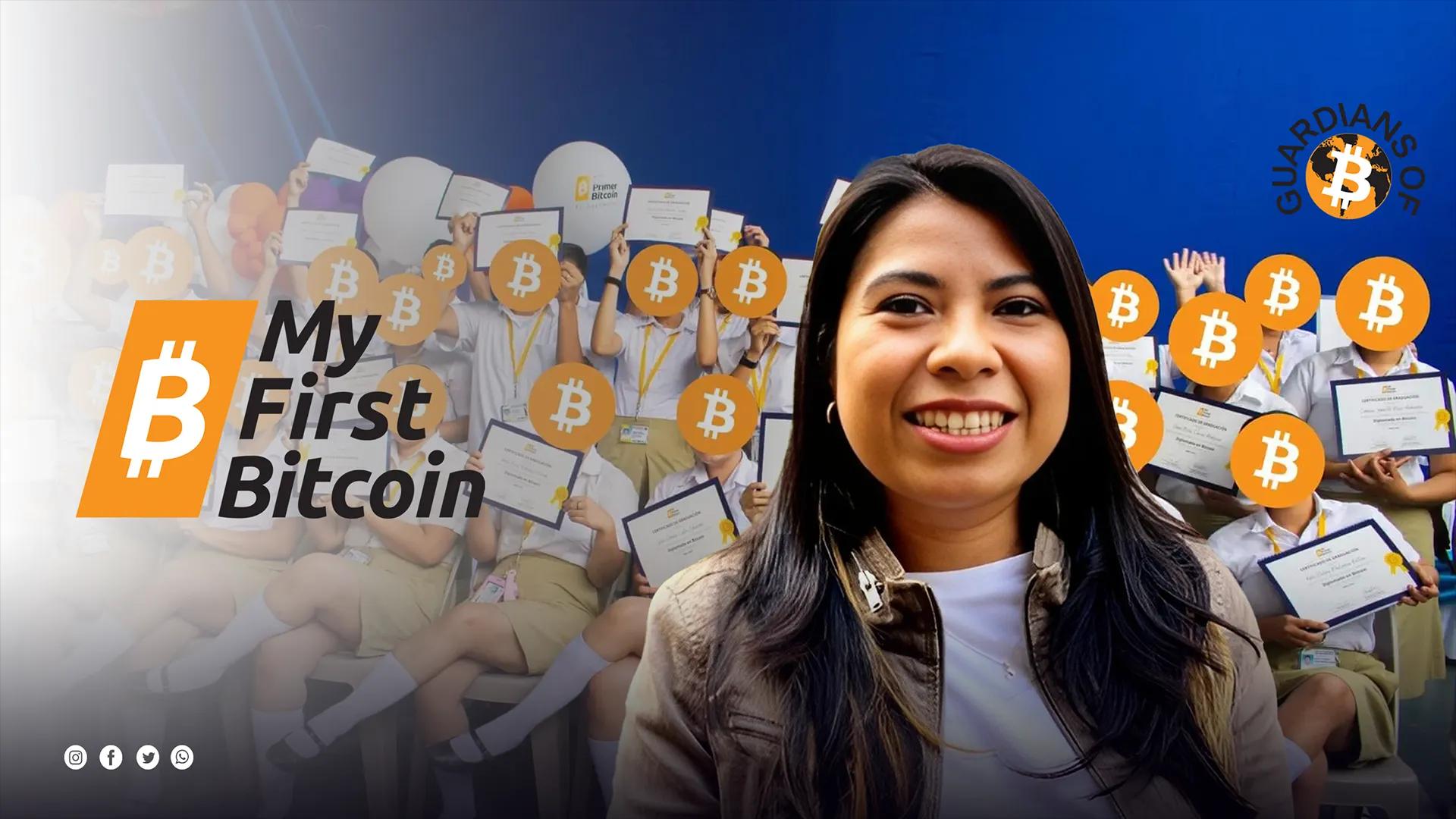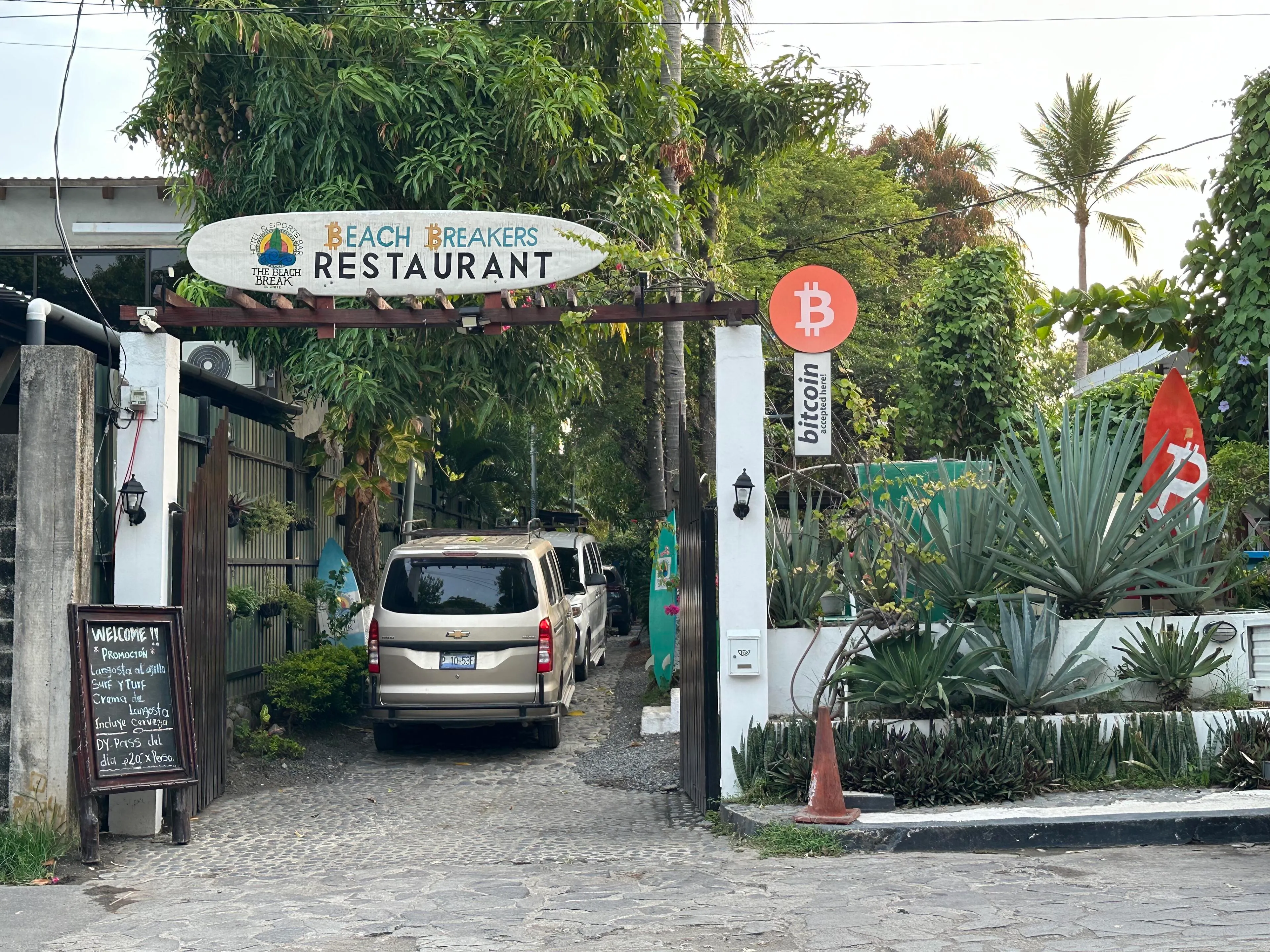My First Bitcoin creates a new kind of school
'We don’t dictate what to think, but how to think,' says Reyna Chicas on their education philosophy

“Once you study, there is definitely no way that you’re going to go back,” Reyna Chicas told The Crypto Radio. As Director of Education at My First Bitcoin, she’s watched students transform from curious beginners to community leaders – all through a 10-chapter course.
My First Bitcoin is an independent education organization based in El Salvador that is reshaping financial literacy by teaching people about Bitcoin – a currency that exists outside traditional banking systems.
A new kind of classroom
"We are an independent Bitcoin education organization. We are based in El Salvador, and we teach about the financial system – financial literacy based on Bitcoin," said Chicas. Their materials are fully open source, available for anyone in the world to use and adapt for free.
The organization operates with a distributed team rooted in El Salvador, but with contributors from Europe and beyond. They previously partnered with the Ministry of Education to train 500 teachers and develop materials for second and third graders. Today, their efforts are primarily grassroots.
My First Bitcoin’s flagship program is the Bitcoin Diploma – a 10-chapter course that takes students from zero knowledge to a full understanding of money and Bitcoin.
"The goal was to basically take people from zero to one, from not knowing how Fiat works or what it is even," said Chicas. The first half focuses on how fiat systems work; the second half explores Bitcoin and how to use it.
The course also teaches practical skills. "We want to teach them that it's easy to use. How many places there are we show BTC map. How you can buy bitcoin, what is the safest way, and how to make sure that you keep your private keys," she said.
Career paths through Bitcoin
My First Bitcoin has taught more than 25,000 students. Some, like Gerardo and Daniel, now help run the program.
"I look at her and I think 'You are just 20, imagine when you get to 25 and you get to 30 – all the skills that you're learning right now,'" said Chicas, reflecting on the growth of young people under her mentorship.
Her own path mirrors that transformation. After working as a freelance virtual assistant, Chicas began volunteering, then teaching, and eventually became Director of Education. Her five years of classroom experience in Guatemala continue to shape how she approaches the work.
Global reach, local voices
The project’s reach now spans over 30 countries and more than 40 active communities. From Kenya to the UK and Nigeria to the United States, educators are using My First Bitcoin's open-source curriculum to teach their own neighborhoods.
Each community adapts the material to fit local realities. In some regions, educators emphasize foundational knowledge about inflation and fiat currency. In others, there’s more interest in technical details or peer-to-peer use cases.
The organization insists on three principles: Bitcoin-only content, an emphasis on critical thinking, and local leadership. "Normally, in El Salvador, Salvadorians teach Salvadorians. There's no foreign teachers from other countries coming in. It's the same in other areas around the world."
Circular economies in action

Bitcoin is used for groceries, transport, and workshops in El Zonte’s Bitcoin Beach economy. Photo: Satlantis / Wasssaaaa
Bitcoin Berlin, a small town in El Salvador, has embraced Bitcoin as a local currency. Chicas visited the town on holiday and decided to test how practical Bitcoin-only living really was.
"We had this challenge with my partner to do just Bitcoin only, like, it's like, Okay, let's try and see if it's true. You know, let's just live on Bitcoin for two weeks in Berlin," she said.
The results were clear: "All your groceries and water and the cleaning lady, like I said, even the tuk tuk... the most important things that you need in life, which is food and water and electricity, and all of that can be paid."
The town’s community has built more than just an economy. “They were telling me about the initiatives that they’ve done... they have this Bitcoin Center because it also helps people to come. And they give classes – English, Spanish for the expats, Lightning, and different workshops and classes throughout the week,” said Chicas.
Berlin isn’t alone. Other towns are beginning to follow its lead. "I think they're also trying another one here in Alegría, which is even smaller than Berlin, 15 minutes away up in the mountain... we could see some people accepting Bitcoin for honey, for souvenirs, for fruits."
Still, building a circular economy is not easy. "It does require a lot of work. I would definitely underestimate how much energy it takes... Find people that want to do it. Find good leaders, honest people, above all, because you're going to deal with money."
Similar initiatives are underway in other towns across the country.
Why circular economies matter
The growth of Bitcoin-based communities in El Salvador is part of a wider trend. Chicas pointed to examples in Peru, Indonesia, and even Afghanistan, where grassroots Bitcoin use is helping people overcome structural barriers.
"This circular economy, especially in these countries, serves as an example that Bitcoin really does solve things we once thought were just not solvable," she said.
In some of the world’s most underserved communities, Bitcoin is creating new options. "All of the most needed communities around the world are using Bitcoin and becoming more sovereign, more free," said Chicas.
She believes this grassroots adoption reflects Bitcoin’s true purpose. "In the whitepaper, it says peer-to-peer transaction, which is what it is here."
But that purpose is often overshadowed. "The media focus on price and speculation means we’re missing the real breakthroughs happening under our noses."
"You come here and it’s like, yeah – this is what it is for… Real collaboration. Not power consolidation. Fiat is power consolidation. Bitcoin is collaboration."
For her, Bitcoin education isn’t just about crypto – it’s about long-term empowerment and critical thinking. "Don’t trust us. Go ahead and look for the set resources... check it out, look it up."
She believes this foundation will one day be part of every school curriculum. Until then, the work continues—open-source, peer-led, and radically accessible.



